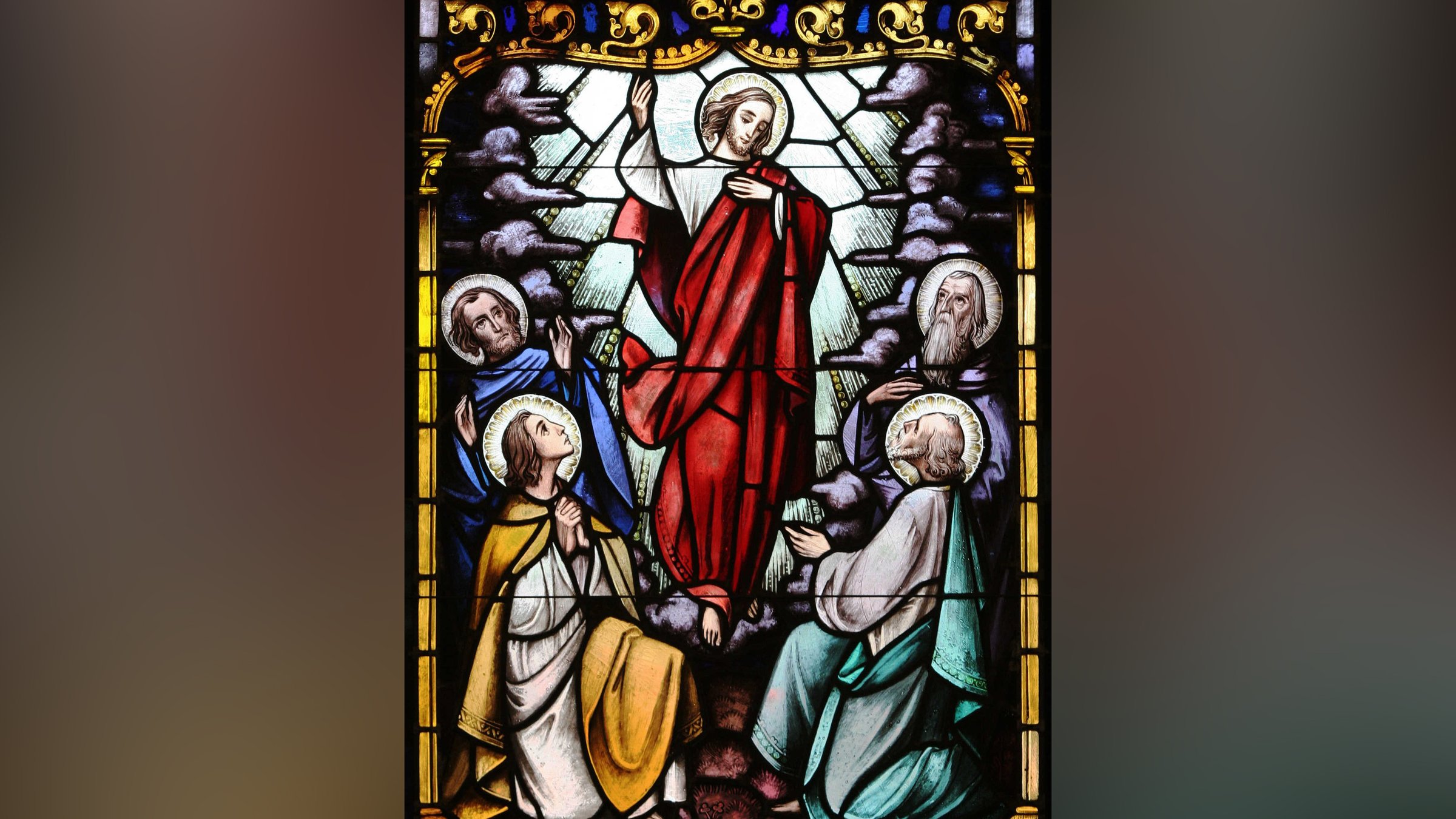Many people today assume that at Jesus’ Ascension into heaven, the apostles felt sad and perhaps even a little lost and that at Pentecost, they were in the Upper Room because they were still so afraid that what had happened to Jesus at His crucifixion might happen to them, too.
However, such interpretations are actually not supported by the Scriptures. What we today tend to interpret as the “appropriate” attitude to the “loss” of Jesus’ physical presence is, in fact, not at all how the apostles responded. Rather, the Scriptures tell us that after Jesus ascended into heaven, the apostles “then returned to Jerusalem with great joy, and they were continually in the temple praising God” (Luke 24:53).
How is it that these men, who had enjoyed the sweet presence of the Risen Lord in His appearances to them throughout those 40 days, were now filled with joy as He left them to return to His Father? For us, such leave-taking, common at this time of year with the end of school and graduations, always holds at least a tinge of sorrow and mourning. But the disciples of Jesus were not mourning, but rejoicing as He ascended into heaven. How is this possible?
I would like to suggest three reasons that the apostles were filled with joy and not with sadness or with fear.
First, the apostles knew that where Christ their Head had gone, not only would they follow, but in fact in a mystical way they were already. Because they were members of Christ’s Body, as St. Paul teaches (1 Corinthians 12), they were with Him in heaven. This is the “already-not yet” that the Church experiences to this day. Because Christ is seated at the right hand of the Father, we are “already” united to the Trinity, although we do “not yet” have the fullness of the Beatific Vision and the tranquility of heaven.
Secondly, I believe the apostles were not saddened by Christ’s Ascension because they knew He was still with them on earth in the Eucharist. He had given them Himself in the Last Supper, and they believed His words that, “This is My Body … This is My Blood.” Moreover, He had commanded them to, “Do this in memory of Me.” He had not left them when He went to His Father; every time one of the apostles repeated His words, He was there.
Finally, the apostles rejoiced because of the promise Jesus made to them before He ascended. He told them to wait for “the promise of My Father” that He would send upon them and said they would be “clothed with power from on high” (Luke 24:49). The disciples rejoiced in anticipation of the gift of the Holy Spirit that the Lord had promised them.
Therefore, in addition to not being sad at the Ascension, the disciples were not huddling in fear in the Upper Room before Pentecost. Rather, they were there united in prayer for this Promised Gift, the Holy Spirit. The Scriptures do indeed refer to the apostles hiding in the Upper Room “for fear of the Jews” at one point, but this was before the Risen Lord had appeared to them (John 20:19). Now that they had seen Him alive and knew that He had conquered death, fear and sorrow fled, and they were filled with His joy and peace.
We, too, are united with Christ our Head who is seated at the right hand of the Father. We, too, encounter His Presence in the Holy Eucharist. We, too, have received the promised gift of the Spirit. Are we, too, filled with the joy of the Lord? When others encounter us, can they recognize, as the Jews could of the apostles, that we have “been with Jesus” (Acts 4:13)? “Enter into the joy of your Lord!” (Matthew 25:23).
Sr. Mary Martha Becnel is a member of the Ann Arbor-based Dominican Sisters of Mary, Mother of the Eucharist.











